


|
1862 |
The American Civil War continues with the Second Battle of Bull Run. This is another victory for the Confederates, but in the west Federal forces begin to gain ground.
Napoleon III of France establishes Maximilian, a Habsburg prince, on the throne of Mexico, but is forced to withdraw his troops four years later, and Maximilian is executed.
Victor Hugo, one of France’s greatest men of letters, publishes Les Misérables whilst in exile. His stand against Napoleon III makes him a symbol of French republicanism.
The Russian novelist Ivan Turgenev publishes his major work Fathers and Sons. His brilliant novels and short stories make him one of Russia’s greatest writers.
|
|
1863 |
Confederate forces under the command of General Robert E. Lee are soundly defeated at the Battle of Gettysburg. This puts an end to Lee’s second and final invasion of the North.
By its style and subject matter, Déjeuner sur l’Herbe (Picnic on the Grass), the work of the French artist Édouard Manet, sets the stage for the advent of Impressionism.
The French composer Georges Bizet produces his opera The Pearl Fishers. His masterpiece, Carmen of 1875, becomes world famous, but he does not live to see its success.
|
|
1864 |
Following the Second Schleswig War,
Prussia takes Schleswig from Denmark and Austria receives
Holstein. This settlement becomes the cause of the Austro-
In his paper A dynamical theory of the Electromagnetic Field the brilliant Scottish physicist and mathematician J.C. Maxwell puts forward the theory of electromagnetic waves.
|
|
1865 |
The American Civil War ends in April with the Confederate surrender at Appomattox Court House, Virginia, but President Abraham Lincoln is assassinated five days later.
After eight years studying plant growth, the Austrian botanist Gregor Mendel produces his laws of biological inheritance, but his findings are not valued until the turn of the century.
Alice’s Adventures in Wonderland is published by Lewis Carroll, a lecturer in mathematics at Oxford University. Its sequel Through the Looking Glass is produced six years later.
The English surgeon Joseph Lister, believing in the germ theory of disease, uses carbolic acid to stop the spread of infection. In France Louis Pasteur saves the silkworm industry.
In South
America war breaks out between Paraguay and
its three neighbours, Argentina, Brazil and Uruguay. The so-
|
|
1866 |
The Russian novelist Fyodor Dostoevsky publishes Crime and Punishment, his first major work. This and his later works, The Idiot and The Brothers Karamazov, are noted for their deep psychological insight.
After five attempts a transatlantic cable is successfully laid from Ireland to Newfoundland. The American financier Cyrus Field and the Irish physicist William Thomson (later Lord Kelvin) play important parts in the success of this project.
Alfred Nobel, a Swedish scientist, invents dynamite, a powerful yet stable explosive. Later, with the fortune he makes from explosives and oil, he founds the famous Nobel Prizes. |
|
1867 |
The Fenian Movement, aiming to gain Irish independence by force, fails in its bid to seize armaments from
Chester Castle in England in support of a full-
In North America, the United States buys Alaska from Russia for less than 2 cents an acre, and the Dominion of Canada is established by the British North America Act.
Hungary is united with
Austria under one monarch, Franz Joseph, and gains a
large measure of independence. This marks the birth of the
dual kingdom of Austria-
volume of his major work Das Kapital. The two additional volumes are edited and published after his death by his friend and collaborator Friedrich Engels.
Napoleon III of France
establishes a colony in the southern part of Vietnam in South- |
|
1868 |
A revolt in Spain forces Queen Isabella II to abdicate. This leads to the Third Carlist War and a powerful but unsuccessful uprising against Spanish rule on the island of Cuba.
With the abdication of Yoshinobu, the Shogunate in Japan is abolished and imperial rule is restored. The samurai are stripped of their power but do not go without a struggle.
|
|
1869 |
In Egypt the Suez Canal is opened. In
the United States the Union
Pacific and Central Pacific Railroads
join up in Utah to complete the first trans-
The Russian author Leo Tolstoy completes his epic work War and Peace. This, together with his novel Anna Karenina, make him one of the world’s great writers of realistic fiction.
The Russian chemist Dmitri Mendeleev compiles the first version of the periodic table of elements. His textbook Principles of Chemistry, completed a year later, proves very popular.
Matthew Arnold, the English poet and social and literary critic, writes his Culture and Anarchy, a scathing attack upon the immorality and materialism of Victorian England. |
|
1870 |
In the Franco-
Following the withdrawal of the French troops from Rome, the Pope is left unprotected. Italian forces are able to occupy the Papal States and complete the Unification of Italy.
Under the influence of Dante
Gabriel Rossetti, William Morris and Edward Burne-
The French writer Jules Verne, the leading pioneer in science fiction, publishes his Twenty Thousand Leagues under the Sea, one of his many exciting adventures into the unknown.
The French composer Léo Delibes produces the famous ballet Coppélia. This and his ballet Sylvia of 1876 establish his reputation as an outstanding composer of dance music.
Lorna Doone, a romantic novel by the English writer Richard Doddridge Blackmore, is published. Set in the 17th century in the region of Exmoor, it becomes a huge success. |
|
1871 |
The English naturalist Charles Darwin publishes his The Descent of Man, a work which traces the origin of man within his theory of evolution, and stirs up further controversy.
A search party, led by the American journalist Henry Morton Stanley, finds the Scottish explorer David Livingstone at Uiji, a trading post on Lake Tanganyika in east Africa.
The grand opera Aida, a major work of the Italian composer Giuseppe Verdi (1853 Va), is performed in Cairo. Later compositions include the operas Otello and Falstaff.
The American artist James Whistler paints Arrangement in Grey and Black: Portrait of the Painter’s Mother, a work which exemplifies his belief in the doctrine of “art for art’s sake”.
British Columbia, situated on the west coast of North America, enters the Canadian Federation following the promise of a railway link across the continent by the 1880s.
|
|
1872 |
The Three
Emperors’ League is formed between Germany,
Austro-
|
|
1873 |
The Third Anglo-
The German archaeologist Heinrich Schliemann, working in Turkey, claims to have discovered the site of ancient Troy. He later discovers treasure at Mycenae in Greece.
|
|
1874 |
The English writer Thomas Hardy completes Far from the Madding Crowd, his first successful novel, and one of many stories based on country life in his native Dorset.
The Austrian composer Johann Strauss, famous for his waltz The Blue Danube, produces his operetta Die Fledermaus. He gained worldwide recognition and fame as “the Waltz King”.
The Impressionists stage an exhibition in Paris, the first of eight. On display are works by Monet, Degas, Renoir, Sisley, Morisot , Camille Pissarro and Paul Cézanne.
|
|
1875 |
The first performance takes place of the opera Carmen , the work of the French composer Georges Bizet. It fails to impress, but was to gain worldwide fame after his death.
The Russian composer Pyotr Tchaikovsky produces his piano concerto in B flat minor, one of his greatest works. He wrote symphonies, concertos and music for ballets and operas.
Benjamin Disraeli, the British Prime Minister, acting on his own initiative, buys Egypt’s shares in the Suez Canal Company and gains a controlling interest in this vital waterway.
|
|
1876 |
The American writer Mark Twain (pen name of Samuel Clemens) produces The Adventures of Tom Sawyer. Its sequel, The Adventures of Huckleberry Finn, is published in 1885 (Vc).
The American scientist Alexander Graham Bell invents the telephone. Demonstrated at an Exposition in Philadelphia, it comes to revolutionize the world of communications.
Sioux Indians kill Colonel Custer and his 210 men at the Battle of The Little Bighorn. The U.S. Government wreak revenge fourteen years later at the Battle of Wounded Knee.
In Norway Edvard Grieg composes his Peer Gynt Suite, whilst in Germany, composer Richard Wagner produces his masterpiece, the opera cycle The Ring of the Nibelung,
The title Empress of India is conferred on Queen Victoria, and she is proclaimed empress at the Delhi Durbar, a gathering of Indian princes and nobles held in May 1877.
|
|
1877 |
The German composer and pianist Johannes Brahms produces his 2nd Symphony. Writing in the classical tradition, his works included symphonies, concertos and chamber music.
A Russo- Russian advance towards Istanbul alarms the powers of Western Europe, especially Britain.
In America Thomas Edison invents the phonograph, forerunner of the gramophone. Two years later he produces the first practical light bulb, and starts the age of electricity.
In South Africa the British annex Transvaal, granted independence in 1852 (Va). Later, however, the Boers revolt and defeat the British at the Battle of Majuba Hill in 1881 (Vc).
The Italian astronomer Giovanni Schiaparelli observes “canals” on the surface of Mars. This leads to much speculation about the possibility of intelligent life on this planet.
|
|
1878 |
The Treaty of San Stefano,
imposed on Turkey at the end of the Russo-
In a further attempt to stop Russian expansion into Central Asia, the British engineer the Second
Anglo-
The evangelist William Booth founds the Salvation Army, a religious and charity organisation which he began as a Church Mission in London in 1865. By his death in 1912 it was at work in 58 countries. |
|
1879 |
In South Africa the British put an end to the Kaffir Wars, begun in 1779, and, after a serious setback at the Battle of Isandlwana, defeat the Zulus at the Battle of Ulundi.
The “War of the Pacific” breaks
out in South America between Chile and the combined forces of
Peru and Bolivia. Fought over a mineral-
The Norwegian dramatist Henrik Ibsen writes A Doll’s House, one of several realistic plays which broke away from the romantic melodrama and laid the foundation of modern drama.
A cave decorated with
stone-
|
|
1880 |
The legendary Australian outlaw Ned Kelly, wearing a metal helmet and body armour, makes his last stand at Glenrowan. He is captured, convicted of murder, and hanged.
In France, the novelist Émile Zola publishes Nana, one of his major works, and the writer Guy de Maupassant gains overnight fame with his short story entitled Boule de Suif.
In Britain the
Conservative Party is defeated by the Liberals and, to the
dismay of Queen Victoria, William Gladstone becomes prime
minister for the second time. As we shall see, the
remainder of her reign, Vc (1881- |
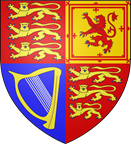






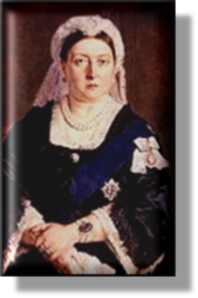 xxxxx
xxxxx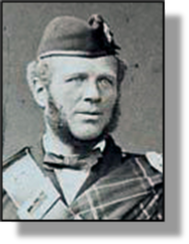 xxxxx
xxxxx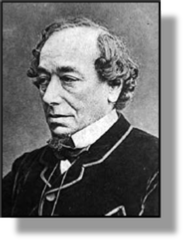 xxxxx
xxxxx Based
on the idea of the Swiss humanitarian Jean Henri Dunant, put
forward after visiting the battlefield of Solferino in
Based
on the idea of the Swiss humanitarian Jean Henri Dunant, put
forward after visiting the battlefield of Solferino in 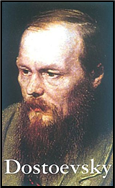 The
The
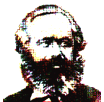
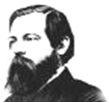 The
German philosopher
The
German philosopher 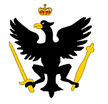
 In
January the Germans force an end to the
In
January the Germans force an end to the  The
French artist
The
French artist 
